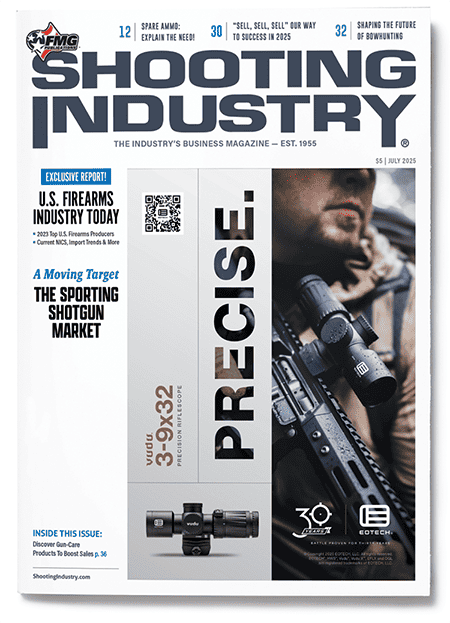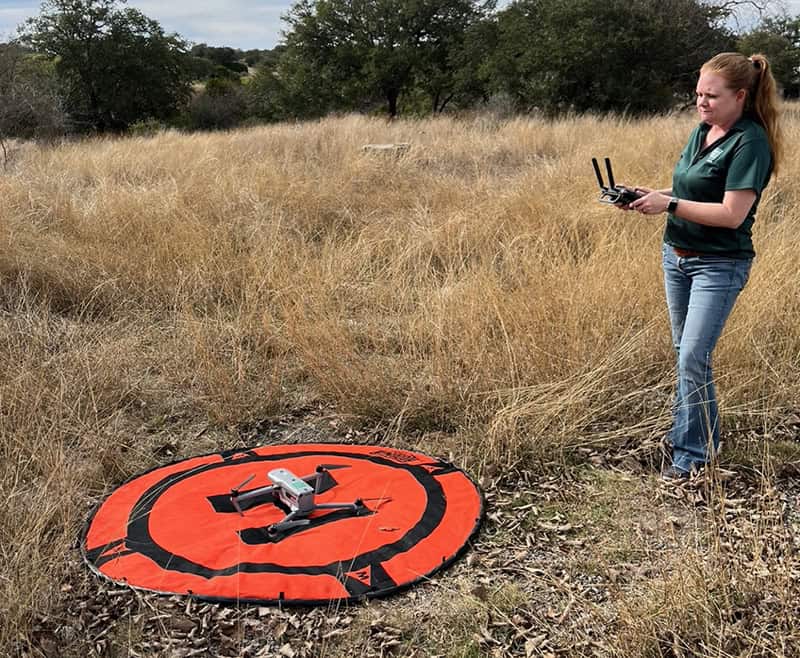Headwinds & Tailwinds
Headwinds facing the U.S. firearms industry are numerous — sluggish consumer demand, continued uncertainty surrounding tariffs and their impact on the economy, the challenge of re-engaging millions of lapsed participants and additional unpredictability surrounding global events in the Middle East and Ukraine.
However, amidst these headwinds, some recent events point to tailwinds that could have far-reaching implications for the future of the industry.
Citigroup Reverses Firearms Policy
One example, firearms industry businesses once again have a “fair shot” at securing financing from one of the largest financial institutions around: Citigroup.
June 3, Citigroup announced in a statement titled “Reinforcing our Commitment to Fair Access to Financial Services” it would “no longer have a specific policy as it relates to firearms” — ending a practice of discriminating against firearms-related businesses that began in 2018 following the Parkland, Fla., tragic mass shooting.
“We are encouraged by the decision for Citigroup to resume providing financial services to members of our industry and the opportunity to work together to promote real solutions for safer communities, while respecting the rights of law-abiding citizens,” said Larry Keane, NSSF SVP and general counsel. “This has been a hard-fought battle to ensure the firearm industry has access to the financial services necessary to compete in today’s market.”
At past NSSF Congressional Fly-Ins on Capitol Hill, I’ve personally witnessed dozens of firearms industry executives raise their hands when asked if they’ve experienced financial discrimination. This about-face from Citigroup is encouraging, but hopefully more than just words — which Keane echoed in the continuation of his statement: “We are guardedly optimistic, yet adhere to the proverb of ‘trust, but verify.’”
SCOTUS Decisions: Mixed Results
Despite some recent pro-gun right rulings (Bruen in 2022), the Supreme Court of the United States (SCOTUS) hasn’t shown a ready willingness to take on cases involving America’s most popular rifle.
In early June, the high court elected not to hear the appeals in Snope v. Brown and the NSSF-funded Ocean State Tactical v. Rhode Island — challenging Maryland’s ban on semi-auto rifles like the AR-15 and Rhode Island’s ban on standard-sized magazines, respectively.
However, Justice Brett Kavanaugh signaled the court will address the “AR-15 issue soon, in the next term or two” in a three-page written statement respecting the denial of cert.
In opposition, Justice Clarence Thomas wrote “[he] would not wait to decide whether the government can ban the most popular rifle in America. That question is of critical importance to tens of millions of law-abiding AR-15 owners throughout the country. We have avoided deciding it for a full decade.”
In spite of its inaction on these two appeals, SCOTUS decisively ruled in the case Smith & Wesson Brands Inc., et al. v. Estados Unidos Mexicanos. In 2021, Mexico filed a $10 billion lawsuit against Smith & Wesson and other firearm manufacturers, alleging the companies’ business practices had fueled cartel violence. It was initially dismissed by the U.S. District Court for the District of Massachusetts in 2022, but the First Circuit Court of Appeals reversed the dismissal last year.
Smith & Wesson petitioned the Supreme Court, which the Court granted cert Oct. 2024, and heard oral arguments on March 4, 2025. June 5, in a unanimous 9–0 decision, SCOTUS ruled the Protection of Lawful Commerce in Arms Act (PLCAA) bars Mexico’s claims that firearm manufacturers “aided and abetted” illegal firearms trafficking to cartels.
While not a case centered on the Second Amendment, Smith & Wesson did include statements from SCOTUS acknowledging the AR-15 platform is “widely legal and purchased by ordinary customers” and “the most popular rifle in the country,” lending further weight to the “common use” test established in the Heller (2008) decision. And, crucially, this outcome further reinforces what PLCAA was intended for when it was enacted nearly 20 years ago.
Following the ruling, S&W President and CEO Mark Smith issued a strong statement, criticizing this attempt to blame the firearms industry for the misuse of its products.
“This suit, brought by Mexico in collaboration with U.S.-based anti-Second Amendment activist groups, was an affront to our nation’s sovereignty and a direct attack on the Constitutional rights of law-abiding Americans. It is also only the latest example of their strategy of attacking our company and our industry by bringing one frivolous lawsuit after another, in a blatant abuse of our legal system to advance their anti-Constitutional agenda,” he said.
Navigating A New NFA Landscape
While there was significant momentum for the Hearing Protection Act (H.R.404/S.364) to be passed as part of the One Big Beautiful Bill Act (OBBB)— which would have removed suppressors from the purview of the National Firearms Act (NFA) — it wasn’t meant to be.
However, firearms owners and prospective suppressor/SBR/SBS buyers can take solace in the $200 tax stamp fee on suppressors, short-barrel rifles (SBR) and short-barrel shotguns (SBS) will be no more starting Jan. 1, 2026.
This removal of this tax, which had been in effect for over 90 years, represents a watershed moment — and will certainly impact the sales of suppressors and SBRs/SBSs for the rest of this year and 2026, onward.
As such, suppressors will be an “interesting” segment to observe because consumers are now faced with two options: 1) They can decide to buy now (and perhaps take advantage of a promotion covering the cost of the tax stamp) while supply is steady, or 2) They can wait to fill out their Form 4 after Jan. 1, 2026, save $200 but likely be part of an avalanche of Form 4s coming in for processing.
Will ATF be able to handle such volume? Some consumers may not want to find out and buy now. Others may roll the dice and wait.
It’s a bit of a murky NFA landscape, but there is potential for it to be a real profit center for dealers ready to capitalize on what will be a significant rush in buying at the start of the 2026 New Business Year.
Use The Time Wisely
Firmly in the “dog days of summer,” we can take solace in some of the changing tides in how our industry is viewed and treated. Use this summer lull to sharpen your store’s offerings, get creative in customer engagement and keep fighting the good fight. It’s the spark that starts the fire.





